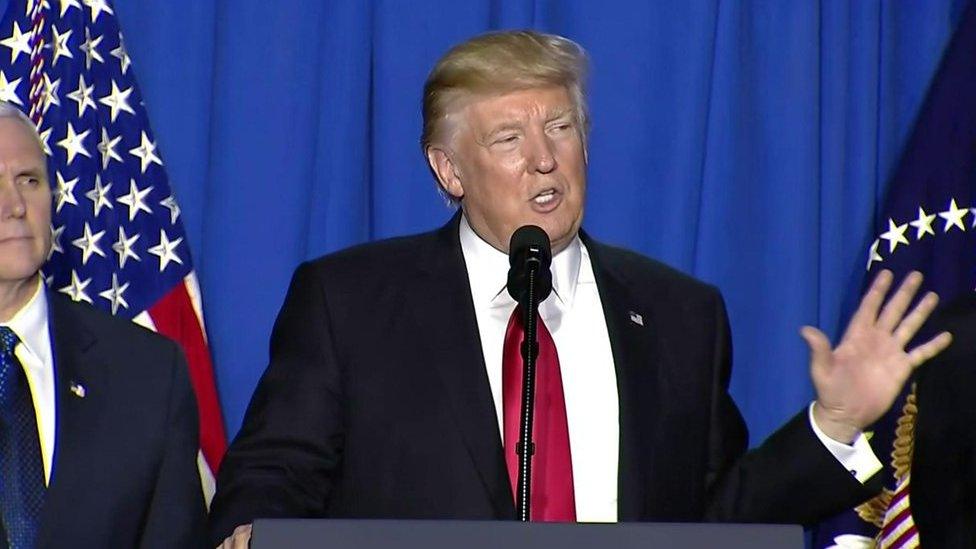Right to bear arms? Trump accused of plagiarising family crest
- Published
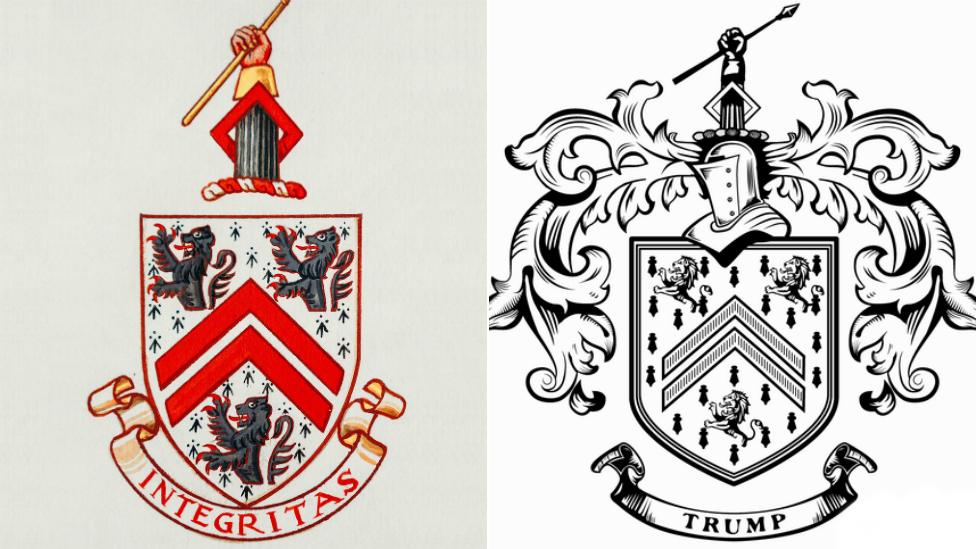
The Trump Organization made only one change: replacing the word "Integrity" with the word "Trump"
It may not be the most dramatic scandal facing Donald Trump this week, but the US president has been accused of branding his US commercial properties with a stolen coat of arms.
Mr Trump's heraldic arms is a near-identical copy of one registered in 1939 by Joseph Edward Davies, the New York Times reported, external. The copy, printed on everything from golf carts to socks, made a single small change: where the original said "Integritas", now it says "Trump".
Davies was an American diplomat and husband to Marjorie Merriweather Post, who built the Mar-a-Lago resort that now belongs to the president, and where presumably he first saw the coat of arms. The similarity was spotted by Davies' grandson, former US senator Joseph Tydings, on a visit to the resort. He told the Times he had not given permission to the Trump Organization to use the arms.
It drew the attention of heraldic officials in Scotland when Mr Trump attempted to brand a new golf course in Aberdeen with the adulterated arms. They noticed that he hadn't registered it with the Court of the Lord Lyon, which approves all applications for arms and has authority to litigate against anyone using a design improperly.
An application to trademark the Trump copy with the College of Arms, the authority for England, Wales and Northern Ireland, was rejected after the college noted that the design had been lifted from an existing coat of arms. The motto, changed by the Trump organisation, does not technically form part of the design, making the two identical in the eyes of the authorities.
"We would never allow this as a new coat of arms," said John Petrie, Rouge Croix Pursuivant of Arms at the college. "There needs to be at least two lineal differences from something that's been granted in the past."
The fact that Mr Trump had changed the colours of the crest to black and gold was not considered sufficient, Mr Petrie said.
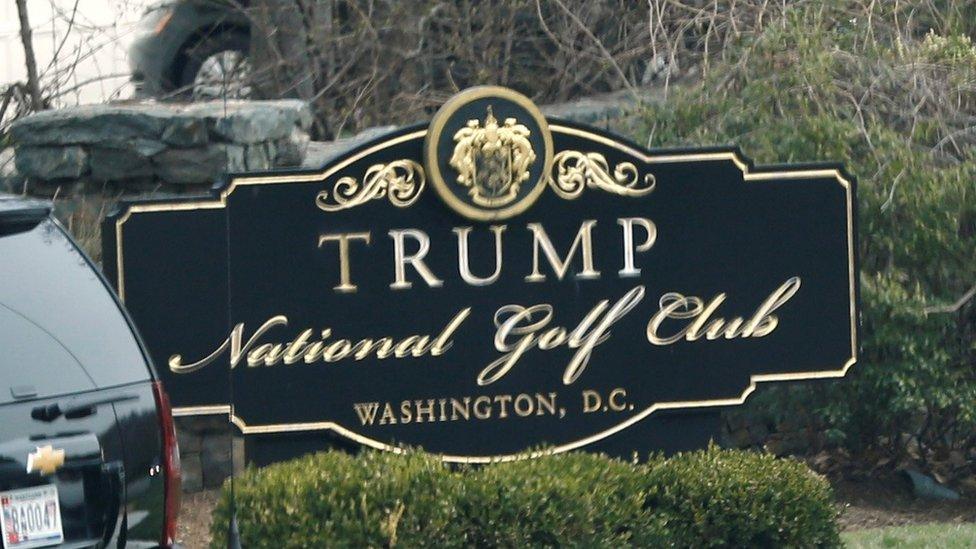
Trump has made liberal use of the borrowed crest at his US resorts
Coats of arms date to the 12th Century, where they were first worn on battle shields. They were adopted by members of the royal family and spread among the wider nobility, granted by the monarch to a male member of the family and passed down the male line.
Nowadays, if you consider yourself to be part of an eminent family or institution, you can make your case to the College of Arms. Your status, and any design ideas you submit, will be reviewed and if approved, you will be granted a letters patent by the most senior herald, the Kings of Arms.
Design remains a matter of taste, however. Modern day symbols of wealth "would not be appropriate", said Mr Petrie. "A design for a coat of arms needs to be suitable, tasteful, and timeless," he said. "Modern day apparel and equipment may not look very good in 50 or 100 years."
There has been some modernisation in design over the years, Mr Petrie said. "We can include a little more than would have been allowed in the past, including national flowers, some national symbols or different animals that might not have been known before."
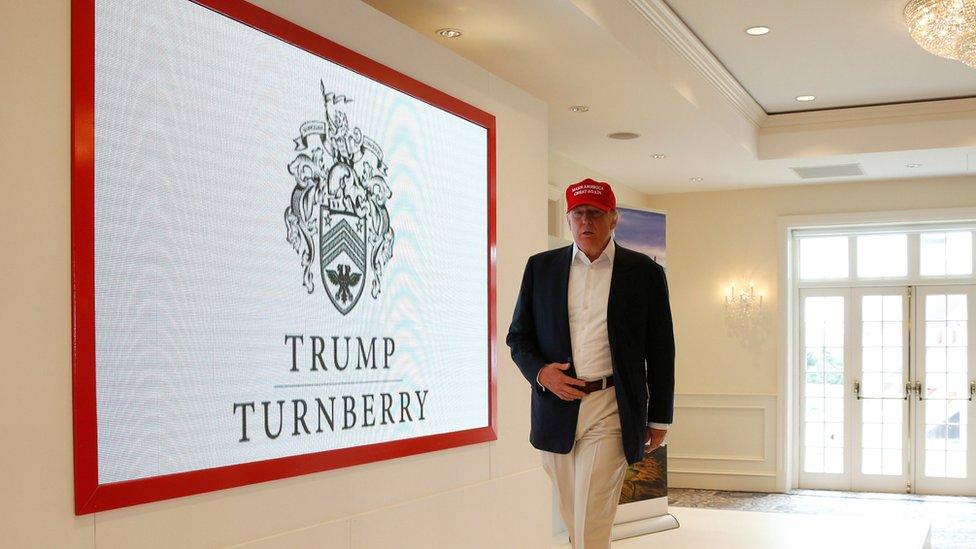
An adapted Trump crest on display at his Turnberry golf resort in Scotland
It is illegal in the UK to assume another family's coat of arms, but someone doing so in England, Wales or Northern Ireland is unlikely to feel the long arm of the law. London's High Court of Chivalry - the special court dedicated to the task - last sat in 1954.
But in Scotland, where Mr Trump used the borrowed design on promotional materials for his golf course, he could still have faced legal action. Mr Tydings told the Times he had talked his family out of taking legal action. "I just told the other members of my family that you can't win on this," he said. "You'll borrow for two generations to sue him."
In the end, after a challenge by the Court of the Lord Lyon, the Trump Organisation altered the design it had taken from Mr Davies and was granted its own Scottish patent. Here's how a Trump spokeswoman described, external the new coat of arms:
"Three chevronels are used to denote the sky, sand dunes and sea - the essential components of the [golf resort] site - and the double-sided eagle represents the dual nature and nationality of Trump's heritage."
She added: "The eagle clutches golf balls, making reference to the great game of golf, and the motto 'Numquam Concedere' is Latin for 'Never Give Up' - Trump's philosophy."
But in the US, where the heraldic laws are less stringent, Mr Trump simply trademarked the Davies family design and plastered it across golf resorts, hotels and assorted merchandise. In Britain it would not be the done thing, said Mr Petrie.
"It's certainly not proper to use the arms of another family," he said. "In this country it is always considered preferable to petition for your own."
- Published6 April 2017
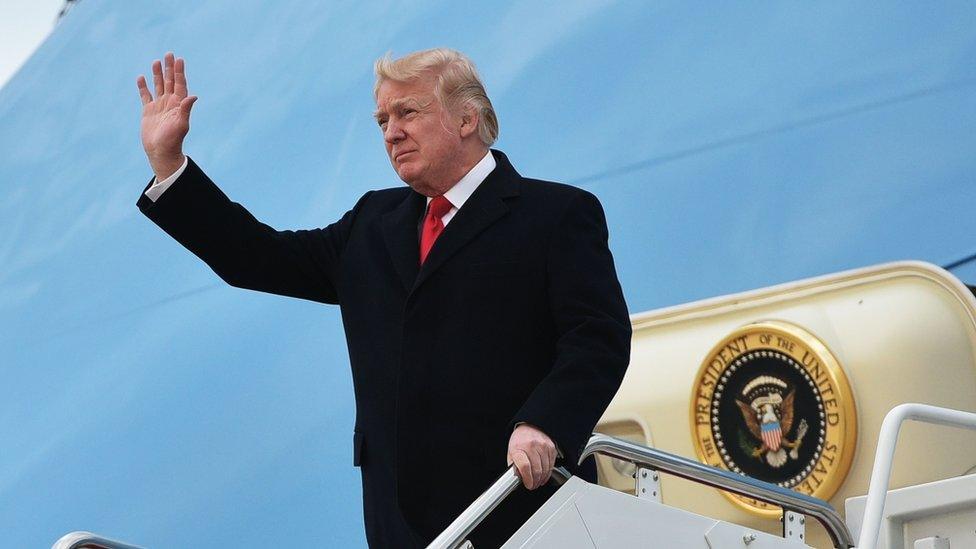
- Published19 July 2016
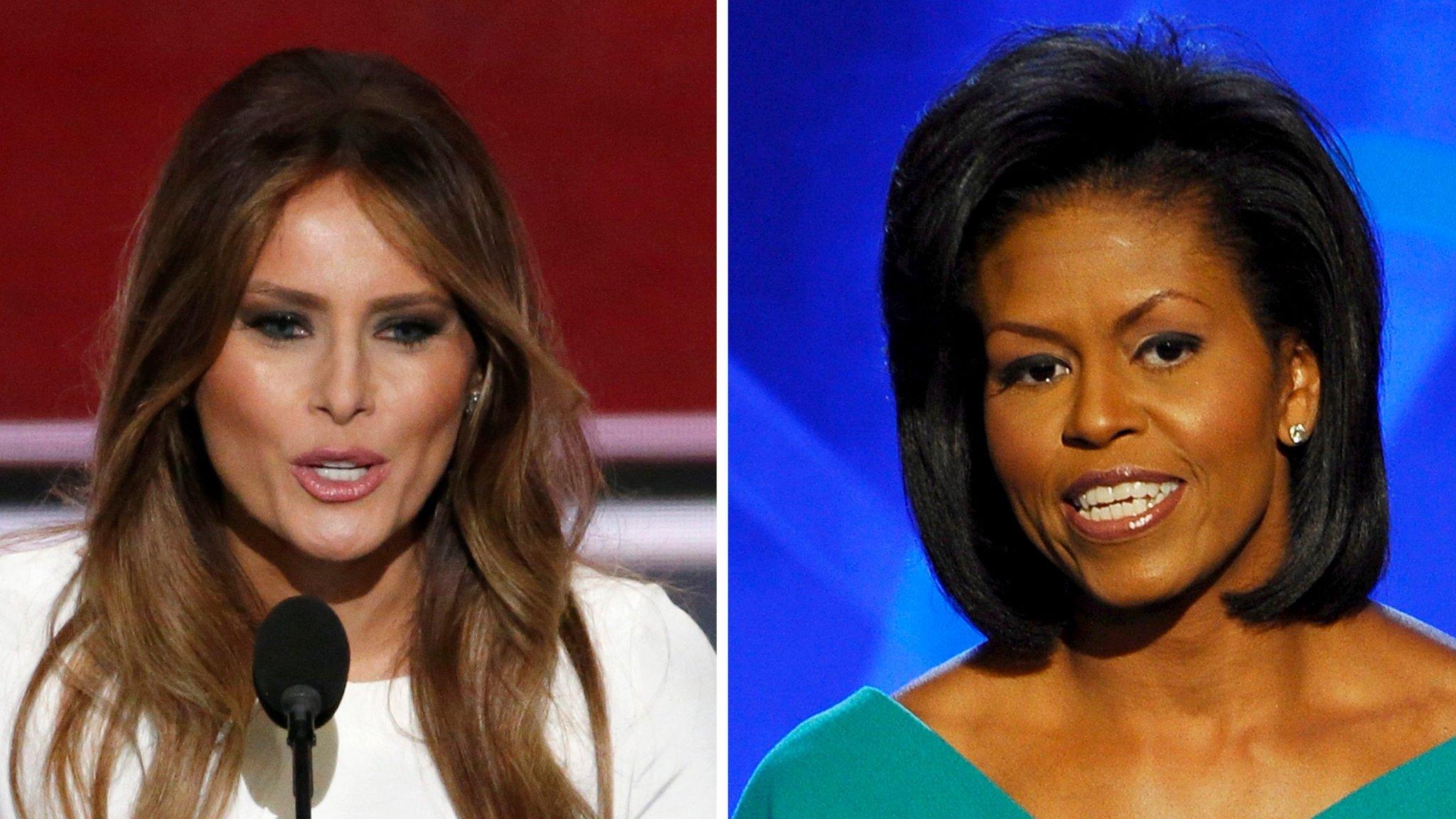
- Published2 February 2017
